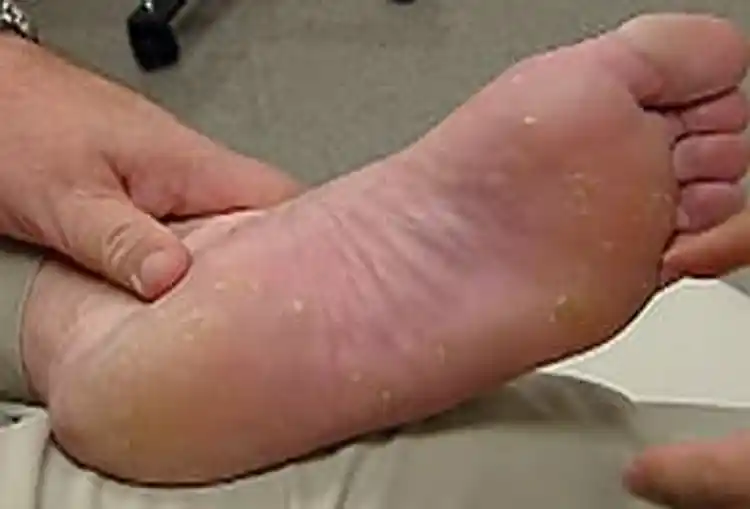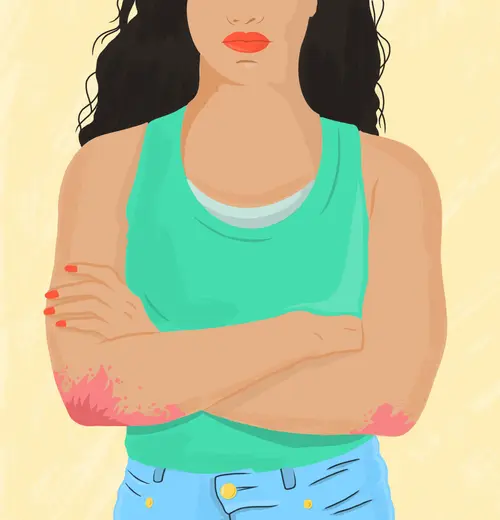Treatment Options for Psoriasis

Hide Video Transcript
Video Transcript
Narrator
Even though he suffers from psoriasis, Joel Thomas considers himself a lucky man. : Oh! Too much! Way too much!
Joel Thomas
It's not visible in dress attire or when I'm playing tennis or anything like that. It's just in covered areas, 99 percent of the time. Narrator
Psoriasis is a chronic skin disorder that affects over seven and a half million Americans. Many are not as lucky as Joel and have severe skin lesions or plaque on very visible or large areas of the body. Plaques form when immune system T-cells go awry and trigger skin cells called kerotinocytes to go into overdrive. Suephy Chen, MD
The kerotinocytes at the very bottom layer of the skin rise to the top and then sheds, and that's what you shed off. And that whole process usually occurs in about a month. But with psoriasis it's much more quick than that and so the whole process may be in a matter of a week or so, and so that's why the thickened skin and the intense scale that happens from it. : Do you have cream on it now?
Narrator
Treatment usually begins with topical ointments and creams, including steroids designed to thin the scales. It must be done carefully, because injury can cause psoriasis to flare. Suephy Chen, MD
There's something called the Koebnerization phenomenon that's seen with psoriasis as well as a couple of other skin disorders where either intentional or non-intentional trauma to the skin will bring upon psoriatic plaques. : So really on the bottoms of the feet here.
Narrator
In fact, Dr. Chen thinks that's what tennis has done to Joel's feet. Suephy Chen, MD
Having a lot of friction to the bottom of your feet, that can be causing the psoriasis to become more active in those areas. Narrator
While the scales are thinned, oral medications like methotrexate and newer injectable biologics are used to slow down the rapid skin growth. : this is a light box
Narrator
Phototherapy also calms the immune system by delivering UVA and narrowband UVB radiation to areas of plaque. : Ok, just step in there for me, please.
Suephy Chen, MD
We protect areas that don't need to have it. It would be very difficult to do that like if you just went outside. : beeping
Suephy Chen, MD
There is a very real risk in doing phototherapy and that is in developing skin cancer. : buzzing
Suephy Chen, MD
So there are some of us who really don't do light therapy any more, not for psoriasis. Narrator
For Joel, Dr. Chen suggests a combination of creams, injectable medications and lifestyle changes to manage his psoriasis flares. Suephy Chen, MD
If people can get their weight under control, then their psoriasis is much more easily managed. Smoking can also really exacerbate the psoriasis. Stress does not cause psoriasis, but stress doesn't make anything better. : Hard hit on tennis ball
Narrator
Joel manages his stress with exercise and so far the flares on his feet caused by tennis haven't changed his routine or his positive attitude. Joel Thomas
I'm kinda like Well I've got it, OK life goes on. : laughing
Joel Thomas
Keep a positive attitude of your body and your skin and your life is going to reflect that. Narrator
For WebMD, I'm Sandee LaMotte. 